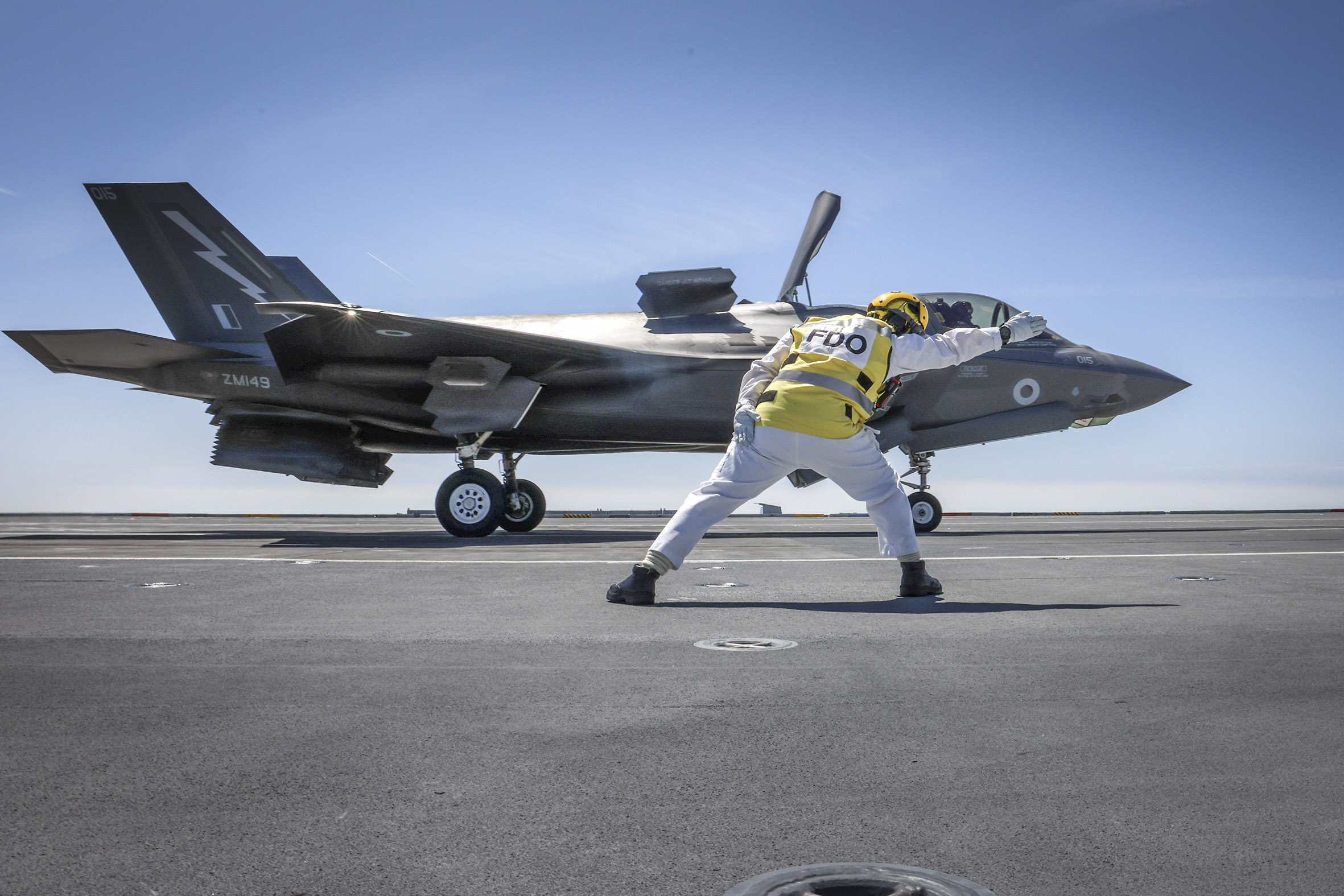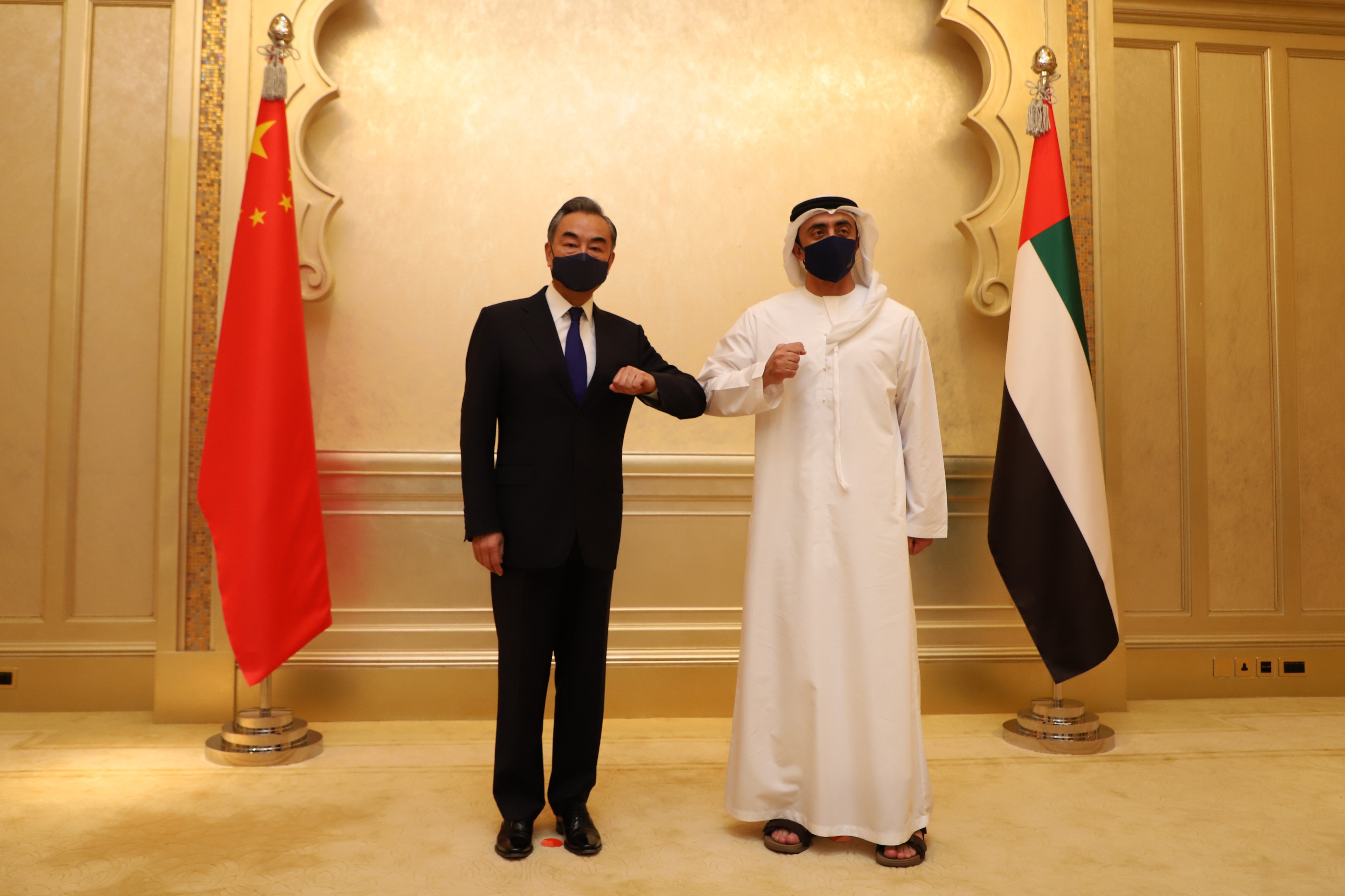The US is indirectly pressuring the UAE to abandon its telecommunication integration with Chinese tech giant Huawei or risk losing the F-35 stealth fighter deal, reports suggest.
- At €7.8B, Why Indian Rafale Jets Are ‘Double The Cost’ Than Egyptian Rafales?
- Why Did Netizens ‘Mock’ Nigeria For Importing JF-17 Fighter Jets From Pakistan?
This move creates a dilemma for the Arab nation, which is a traditional ally of the West and a robust economic partner of China.
The F-35 Joint Strike Fighter deal came to light in the aftermath of the US-brokered Abraham Accords, led by UAE which became the third Arab country and first from the Gulf to normalize ties with Israel.
A $23-billion deal for 50 F-35 fighters and MQ-9B Reaper drones was signed before Donald Trump demitted office in January; the same was to be delivered by 2026-27.
Washington’s Suspicions
Washington’s disapproval of the UAE partnering with Huawei is not new, according to a report by Bloomberg. During the time of the Trump administration, the US pushed the Emiratis to consider an alternative to the controversial Chinese telecom giant, before sealing the agreement and stepping away from escalating economic and security ties with China.
Dragon On Fire – Why China Would Be Furious With US-Russia Summit In Geneva
However, the UAE went ahead to partner with Huawei Technologies for a 5G rollout in the country to have a technological edge in the region.
The Biden administration recently approved the sale of fifth-generation aircraft after putting it on hold in light of a review of foreign arms sales by the previous Trump administration.

The democrats had earlier criticized the sale of stealth weapons to Abu Dhabi and possibly Saudi Arabia for its potential use in wars in Yemen and Libya.
As per recent reports, Washington is giving the UAE four years, before the delivery of military weapons, to reverse the Huawei integration with the country’s telecommunication network.
Emirati officials have shown displeasure over the short time period and have insisted sought more time to look for a feasible and affordable alternative to Huawei.
The UK that previously suspended Huawei in its 5G rollout program has given time till 2027 to its telecom operators to find a replacement.
In continuation of the policies of his predecessor, Biden has taken the rise of China as a direct challenge to liberal and democratic international order. Washington’s concerns stem from the fear of access to US military technologies to the Chinese and Russians who have close ties with the Emiratis.
It has accused Huawei, a company founded by a former official of China’s People’s Liberation Army (PLA) Engineering Corps, of spying and intelligence gathering for the Chinese government.
Both the company Huawei and the Chinese government deny these accusations.
On a similar note, the US had previously expelled Turkey, a NATO ally, from its F-35 program for its acquisition of Russia’s S-400 air defense system.
UAE’s Ties With US
A traditional ally of the West, the UAE is an important and strategic player in the region. It was one of America’s strongest Arab allies in its global war on terror and has maintained powerful ties with the West.
The UAE hosts two American military bases – Al Dhafra Air Base near Abu Dhabi and Fujairah Naval base overlooking the critical Strait of Hormuz.
However, with the coming of the Biden administration and its distinctive foreign policy, certain friction points have emerged. The Gulf nation has visible reservations over Biden’s persistence to revive Iran’s nuclear deal.
The UAE perceives Iran as one of the biggest threats in the region and is wary of growing power and influence. Abu Dhabi’s support to the Assad government in Syria might become a confrontational issue with the West that supports anti-Assad forces.
UAE & China Getting Closer
The UAE which is on a mission to diversify its oil-based economy and build high-tech next-generation cities to become a provider of critical services is increasingly shifting towards China.
It started using the China-made Sinopharm anti-Covid vaccine long before it was approved by the World Health Organization (WHO). Other vaccines available in the emirates include American Pfizer, Oxford’s AstraZeneca and the Russian Sputnik.
During the visit of Chinese Foreign Minister Wang Yi in March, the two sides agreed on setting up a production unit of the Sinopharm vaccine at the Khalifa Industrial Zone of Abu Dhabi.

China’s Growing Footprint In Middle East
With the visible shift in the US policy from the Middle East towards the Indo-Pacific, China is looking to fill the vacuum through its heavyweight economic investments and partnerships.
The Arab nations, most of whom traditional and constitutional monarchies, value China as an economic and security provider over the West for its non-commitment to western democratic practices.
Huawei has been named as co-chair of the Organisation of Islamic Cooperation’s (OIC) 5G security working group, fuelling speculations over other Arab states partnering with the Chinese telecom giant. Saudi Arabia and the UAE, the two bigshots in the region, are currently involved with the company for enrolling 5G and providing digital and cybersecurity services to ‘smart cities’.
Apart from the UAE, six other Middle Eastern countries have approved Sinopharm — Bahrain, Egypt, Iran, Iraq, Jordan, and Lebanon whereas Turkey has approved the other Chinese vaccine Sinovac along with Egypt.
China has played a balancing act in the region as it remains a significant economic partner of both Saudi and Iran. Suadi remains engaged with Huawei in upgrading the country’s critical digital infrastructure while the $400 billion worth 25-Year Comprehensive Strategic Partnership agreement with Iran gives China a bigger role in the region.
Perhaps China’s biggest diplomatic victory till now has been the silence of the Arab world over the alleged human rights violation of Uighur Muslims in China’s Xinjiang autonomous region, which continues to attract sharp criticism from the West.
If the arms sale remains on track, the UAE will become the first Arab country to hold stealth weapons, bolstering its regional outlook and power manyfold. However, if Abu Dhabi is coerced to choose, it remains to be seen whether the US military bribe will be enough to make Emiratis move away from the Chinese technological assistance.
READ MORE
- Watch: The Ultimate Dogfight Between US & Russian Fighter Jets Over A ‘Top-Secret’ Air Base In Nevada
- Why India’s Ladakh Region Is Crucial For China’s Rise As An Economic Super-Power?
- 30 Times Faster Than Speed Of Sound: Is China Really Winning The Hypersonic Race With Its JF-22 Wind Tunnel?




